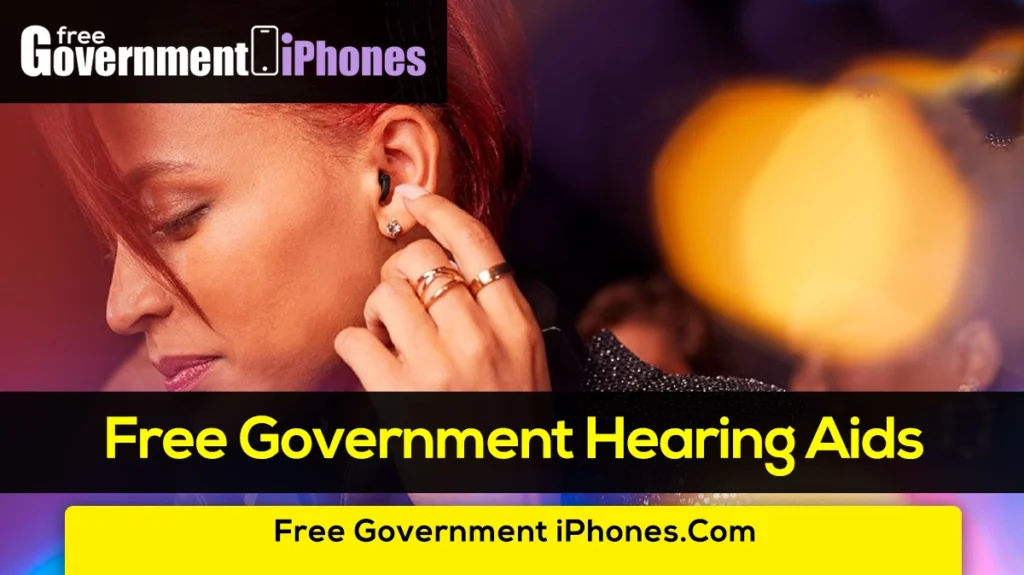In a world filled with the symphony of life, the ability to hear is nothing short of a precious gift. Unfortunately, not everyone is fortunate enough to enjoy crystal-clear soundscapes. Hearing loss is a common challenge faced by millions of individuals worldwide. To bridge this gap and ensure everyone has access to better hearing, governments around the world have implemented programs that offer free hearing aids. In this article, we’ll delve into the world of “Free Government Hearing Aids” to understand their significance, eligibility criteria, and the process of obtaining these auditory marvels. You should also checkout Free Government Grants for Cancer Patients.
What is Hearing Loss?
Before we dive into the government initiatives, let’s grasp the concept of hearing loss. Hearing loss can be a gradual or sudden decline in one’s ability to hear sounds. It can affect individuals of all ages, from infants to the elderly, and may be caused by various factors, including genetics, exposure to loud noises, or simply the aging process.
Untreated hearing loss can have far-reaching consequences. It can lead to social isolation, hinder communication, affect job performance, and even impact mental health. Recognizing the importance of addressing hearing loss, governments worldwide have taken steps to provide free hearing aids to those in need.
Free Government Hearing Aids
Governments across the globe have initiated programs to provide free hearing aids to their citizens. These programs aim to improve the quality of life for individuals with hearing impairments. They recognize that hearing is not just a sense but a gateway to meaningful human interaction.

Hearing aids through Medicare
Certainly! When it comes to Medicare and hearing aids, there are some important things to keep in mind.
Firstly, it’s essential to know that Medicare Parts A and B do not include coverage for the cost of hearing aids or the exams needed to fit them properly. However, there’s still some good news. Medicare Part B does cover hearing and balance exams when they are recommended by your doctor. Additionally, Medicare Part B allows for an annual audiology appointment to monitor any changes in your hearing over time.
Medicare Advantage, often referred to as Medicare Part C, may offer hearing benefits. However, it’s important to note that the availability of these benefits depends on the specific Medicare Advantage plan you choose. Not all Medicare Advantage plans include coverage for hearing aids or related services, so it’s crucial to carefully review the details of your plan to see if this option is available to you.
Hearing aids through Medicaid
When it comes to Medicaid and hearing aids for low income individual, it’s essential to understand that the coverage can differ depending on the state you live in and the specific Medicaid plan you’re enrolled in. There isn’t a one-size-fits-all approach when it comes to Medicaid coverage for hearing aids, so it’s crucial to be informed.
Medicaid coverage for hearing aids can vary significantly from state to state and even from one Medicaid plan to another within the same state. To get a clear picture of what’s covered, it’s advisable to reach out to your Medicaid provider or representative. They can provide you with specific information about the coverage available in your area and under your plan.
Hearing aids through TRICARE
Certainly! If you or an immediate family member in the active-duty military have a hearing loss diagnosis, you could be eligible to receive hearing aids from TRICARE-approved providers.
Eligibility Criteria
Here’s the Eligibility Criteria to get a free government grant hearing aids.
Income-Based Assistance
In most cases, eligibility for free government hearing aids is determined by income levels. Those with limited financial resources often qualify for these programs. The specific income thresholds vary from one region to another, but the intent is the same: to assist those who may not afford hearing aids on their own.
Age and Disability
Some government programs focus on specific age groups or individuals with disabilities. For example, senior citizens and veterans may have special programs tailored to their needs.
The Process of Obtaining Free Government Hearing Aids
Consultation and Assessment
To embark on the journey to better hearing, individuals typically start by scheduling a consultation with a healthcare provider or audiologist. During this assessment, the severity of hearing loss is evaluated, and the need for a hearing aid is determined.
Filing an Application
Once eligibility is established, applicants need to complete the necessary paperwork. This usually includes income verification, medical reports, and other relevant documents.
Fitting and Adjustment
Upon approval, individuals receive their free government hearing aids. These devices are not one-size-fits-all; they are customized to the wearer’s specific hearing needs. Audiologists ensure that the devices are comfortable and effective.
Ongoing Support
Government programs often include provisions for follow-up care. This ensures that individuals have access to maintenance, repairs, and adjustments as needed to keep their hearing aids functioning optimally.
FAQs
Are free government hearing aids of good quality?
Yes, these hearing aids meet quality standards and are often supplied by reputable manufacturers.
Can I apply for free government hearing aids for my child with hearing loss?
Yes, many programs cover children with hearing impairments.
Is the application process complicated?
While there is paperwork involved, it’s typically straightforward with assistance available if needed.
Are there waiting lists for free hearing aids?
Waiting times may vary, but programs aim to provide aid as quickly as possible.
Can I get additional accessories with my free hearing aids?
Some programs may offer accessories like batteries and maintenance kits, but it varies by region and program.
Final Thoughts
Free government hearing aids are not just about providing a device; they are about restoring the symphony of life to those who have been living in silence. These programs are a testament to the commitment of governments worldwide to enhance the quality of life for their citizens. By providing access to hearing aids, governments empower individuals to engage in conversations, pursue careers, and enjoy life to the fullest.





